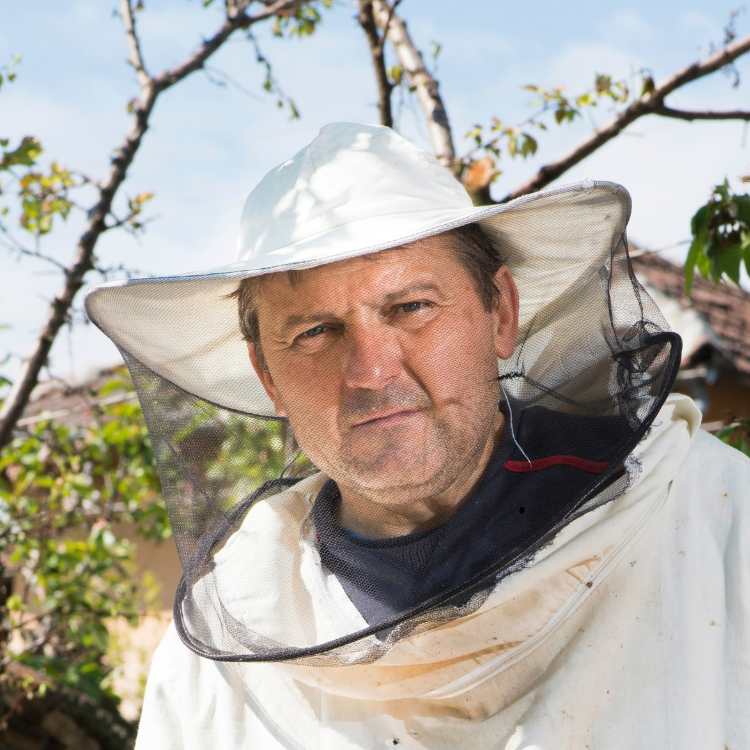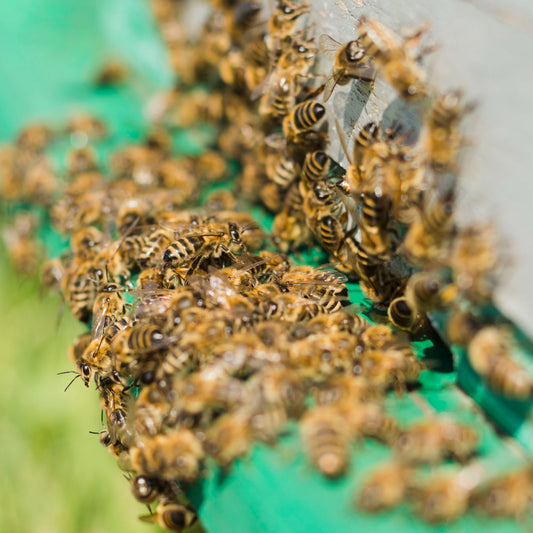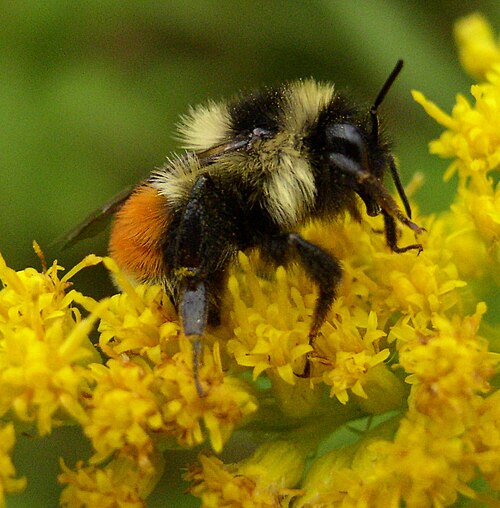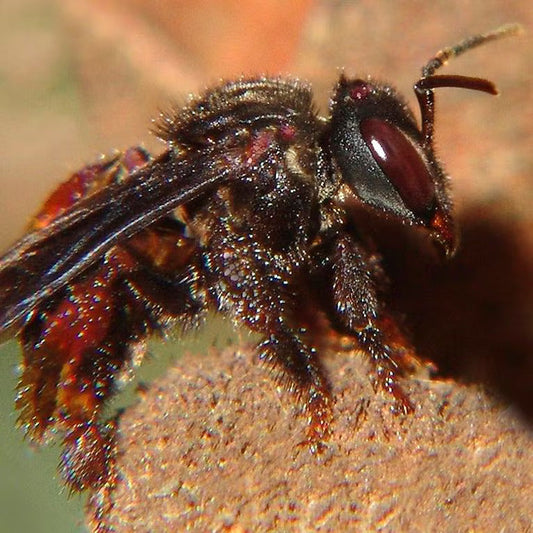Entering the wonderful world of beekeeping, you will quickly realize that beekeeping and gardening go hand in hand. Seeing our buzzing friends thrive among the flowers, gathering nectar and pollinating the garden, is a beautiful sight to behold. But weeds can be a challenge for your thriving garden. So we tend to gravitate towards weed killers to keep our gardens safe. However, have you ever stopped to wonder what effects these weed killers have on the bees? What saves your flowers often ends up killing the bees. Commercial weed killers contain enough harmful chemicals to wipe out an entire colony of honeybees.
So what is the best way to keep your plants safe from weeds without harming the bees? There is good news. You can make your own bee friendly weed killer at home using simple and natural ingredients.
Why avoid chemical weed killers?
Conventional herbicides are known to contain glyphosate which is extremely harmful for the bees. While it does not kill the bees instantly, exposure to glyphosate weakens their immune systems and disrupts their ability to navigate. It even has the potential to harm the future generation inside the hive. The last thing you would want as a beekeeper is to create a hostile environment for the bees. That is why switching to a bee friendly weed killer can be your best bet for a healthy garden with a thriving bee population.

DIY bee friendly weed killer
For those stubborn weeds that refuse to go away, a homemade bee friendly weed killer spray can be the exterminator you need. Here is a simple step by step guide on making your own bee friendly weed killer at home.
What you need
- 1 gallon white vinegar (apple cider vinegar works well too)
- 1 cup of salt (regular or Epsom salt)
- 1 tablespoon of dish soap
How to make
- Start by mixing all the listed ingredients into a large bowl until the salt is completely dissolved.
- Now strain the solution into a spray bottle for easy application.
- Spray the solution directly onto weeds. The vinegar and salt will dehydrate the weed and the dish soap will make the mixture stick to the leaves.
Note: Do not spray on desirable plants as this mixture is not selective and can harm any vegetation it touches.
How it works
Vinegar contains acetic acid, which when applied to the weed breaks down its cell walls, causing them to dry out and die. The salt in this bee friendly weed killer further helps to dehydrate the plant. The dish soap reduces surface tension, allowing for better absorption.

Spraying homemade weed killers
Best practices to follow
To maximize effectiveness while minimizing impact on pollinators, here are a few simple guidelines.
- Spray late in the day: Bees are most active during the morning and early afternoon. We suggest avoiding these times and instead applying your bee friendly weed killer in the evening.
- Target weeds directly: Avoid spraying on blooming flowers or plants that bees frequent.
- Use in moderation: Although this DIY bee friendly weed killer is going to be much safer than off the shelf commercial alternatives, excessive use is not advised. This can disrupt the soil’s ecosystem so apply only when needed.
Other natural methods for controlling weeds
A bee friendly weed killer might not always be the right tool to remove weed. Here are some other natural strategies that help get rid of weeds in your garden.

Manually removing weed from garden
Hand weeding
The most effective method is also the simplest. Pulling weeds manually ensures that you remove them from the root without introducing any harmful substances to your garden. However, it requires more time and effort.
Mulching
A thick layer of mulch acts as a natural barrier against weed growth in your garden. Organic mulch like wood chips, straw, or grass clippings blocks out the sunlight and prevents weeds from sprouting. Plus, the organic mulch enriches the soil with nutrients and helps retain moisture. This keeps your garden beds healthy and reduces the need for additional watering.
Corn gluten meal
Corn gluten meal is a natural pre-emergent herbicide that prevents weed seeds from germinating. Although this won’t kill the existing weeds, but can help to significantly reduce the number of new weeds popping up in your garden.
Here’s a bonus. Corn gluten meal also works well as a fertilizer, making it an excellent bee friendly weed killer alternative.
A balanced approach to weed management
A true bee friendly weed killer strategy is going to involve more than just replacing chemical herbicides with natural alternatives. Think of it as embracing a more diverse, pollinator friendly garden by allowing some types of weeds to thrive. Many plants like clover and dandelions are classified as weeds but these are essential food sources for bees. Instead, strive for a perfectly manicured lawn with designated spaces for wildflowers and native plants. It is a holistic approach that not only benefits the bees but also supports a thriving ecosystem in your backyard.

Selective weed management
Parting words
Maintaining a perfect, weed-free garden does not have to come at the expense of the bees. Natural bee friendly weed killer can be easily made at home to take care of the pesky weeds. However, be selective in removing the weeds because some are crucial food sources for the bees.
A little effort is going to go a very long way in creating a garden that is both stunning and beneficial to the ecosystem.
Join us in the effort to save the bees. Explore our full blog here.





